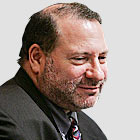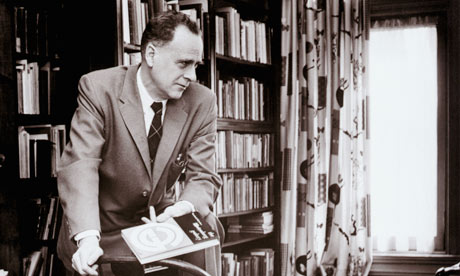So, I just want to add here, and for my own personal records, that on McLuhan Day, which was last week on July 21st, McLuhan's birthday, I did a series of short radio interviews for 7 local Canadian radio stations, all part of the CBC, the Canadian Broadcasting Corporation. The interviews were done by telephone, occurring between 6:00 and 9:00 AM. I'm not a morning person, but I got up at 5:30 AM to get enough coffee into me to be coherent at 6.
The local stations were Quebec City, Sudbury (Ontario), Thunder Bay (Ontario), Yellowknife (Northwest Territories), Ontario (southern parts, not Toronto), Victoria (British Columbia), and Vancouver (British Columbia). Some of the interviews were live, some taped, most if not all of them were not archived as podcasts, or rather part of podcasts. Some may have been, I don't know, but hey, that was never even an option back in the good old days of broadcasting.
It was a strange experience, something of a rapid-fire succession, each asking pretty much the same questions, asking me to explain what "the medium is the message" means, what the "global village" is, and a couple of them asked about McLuhan's conservatism. It was a funny experience, though, answering the same questions seven times over in short order, although it did give me an opportunity to refine my answers.
So, I can't provide you with a recording or transcript of what I said, but I did tweet my morning activities, so I'll share them with you here, although I warn you that they're a bit prosaic:
LanceStrate Lance Strate
getting ready to do the first in a series of 7 short interviews for Canada's CBC radio stations on the Marshall McLuhan centenary
LanceStrate Lance Strate
first CBC interview for Quebec City taped. Talked about the meaning of "the medium is the message," and the "global village"
LanceStrate Lance Strate
Two more CBC interviews done in quick succession, for Sudbury & Thunder Bay, & a quick blog post on The McLuhan Century bit.ly/ncoGS7
In between the interviews, there was time to do a blog post, check email, and tweet about someone else's interview:
LanceStrate Lance Strate
and a great article on McLuhan by Joseph Duggan in the American Spectator spectator.org/archives/2011/… Way to go, Joe!
octavioislas Octavio Islas
Todo interesado en #McLuhan hoy debe seguir a @LanceStrate ex presidente de la Media Ecology Association.
Thanks for the shout-out, Octavio, which made the morning an affair for both sides of the border, and consequently, I wound up with a whole bunch of new Twitter followers from Mexico. Anyway, to continue:
LanceStrate Lance Strate
another CBC interview on McLuhan taped, this one for Yellowknife, & the first one to ask about how his conservative views affected his work
LanceStrate Lance Strate
just taped another quick interview on McLuhan for CBC's Ontario morning show. 5 down, 2 to go!
LanceStrate Lance Strate
Just taped the CBC McLuhan interview for Victoria, which will air around 6:50 AM, for my friends out in BC. Got one more left for Vancouver
LanceStrate Lance Strate
about to do a live interview with CBC in Vancouver
LanceStrate Lance Strate
and that concludes my McLuhan morning with the CBC. Kind of fitting to be spending it *on* the media, after all...
But before I go, while I'm still on the subject of McLuhan, and recently mentioned south of the border, here's another point of contact, much further south, brought to my attention by an email from Laura Bertone. It seems that I was quoted the week before in a rather substantial article on McLuhan in Argentina's leading newspaper, La Nacion. I had no idea!
The article showed a very sophisticated understanding of McLuhan's media ecology for a newspaper piece, although it did get things a little mixed up, correctly stating that I have said that Lewis Mumford was a major influence on McLuhan, incorrect in saying that Mumford influenced McLuhan's ideas about sense perception--it was McLuhan's ideas about electricity and electric technology bringing back an organic quality, being decentralizing in nature, and defining a whole new era of human history.
Funny thing is, I think the article's source for what I said was a yet-to-be published essay on McLuhan and new media that I wrote for a special issue on Marshall McLuhan for a major Latin American communication journal, Revista Latinoamericana de Ciencias de La Comunicación. My guess is the author got a copy of the draft, or galleys, but I can't say for sure, and anyway, hey, no problemo!
If you're interested in reading the Spanish language article in La Nacion, here's the link: Queríamos (y odiábamos) tanto a McLuhan...










